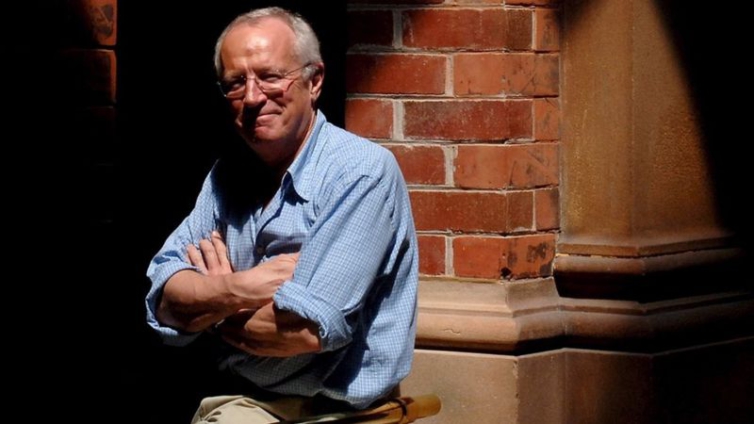Veteran foreign correspondent Robert Fisk has died of a suspected stroke at the age of 74.
He had been admitted to St Vincent's Hospital in Dublin after falling ill at his home on Friday, and died shortly afterwards, the Irish Times reported.
Fisk won numerous awards for his reporting on the Middle East, starting from the 1970s.
But he also drew controversy for his sharp criticism of the US and Israel, and of Western foreign policy.
A wonderful and dedicated journalist & author who I had the pleasure of meeting several times in the US
Robert Fisk, veteran UK journalist, dies aged 74 https://t.co/BCwgPkKMJ7— The Ancient World #BLM (@TheAncientWorld) November 2, 2020
Covering wars in the Balkans, Middle East and North Africa for UK newspapers over five decades, Fisk was described by the New York Times, in 2005, as "probably the most famous foreign correspondent in Britain".
Born in Maidstone, Kent in 1946, he later took Irish citizenship and had a home in Dalkey outside the capital Dublin.
Irish President Michael D Higgins has expressed his "great sadness" about Fisk's death on Sunday.
"With his passing the world of journalism and informed commentary on the Middle East has lost one of its finest commentators," he said in a statement.
"With his passing the world of journalism and informed commentary on the Middle East has lost one of its finest commentators."
— President of Ireland (@PresidentIRL) November 1, 2020
Statement from President Higgins on the death of Robert Fisk:https://t.co/iuewqXuE4n
After starting his career at the Sunday Express, Fisk moved to Belfast in 1972 to cover the Troubles as Northern Ireland correspondent for the Times. He became the paper's Middle East correspondent in 1976.
Based in Beirut, he reported on the civil war in Lebanon, as well as the Iranian Revolution in 1979, the Soviet war in Afghanistan and the Iran-Iraq War.
He resigned from the Times in 1989 after a dispute with the owner Rupert Murdoch and moved to the Independent, where he worked for the remainder of his career.
In the 1990s he interviewed Osama Bin Laden three times for the paper. He described him as a "shy man" and looking "every inch the mountain warrior of mujahedin legend" in their first interview in 1993.
Latest Stories
-
Ejura Sekyeredumase MP demands autopsy on resident who died in Police custody
1 hour -
Kusaas Diaspora Union launched to spearhead global unity, development
3 hours -
Bright Simmons: Mahama’s reduction of ministries to 23 amid calls for efficiency, cost-cutting
3 hours -
Maxwell Hanson seeks apology and compensation from Anim Addo over defamation claims
4 hours -
We listen, we don’t judge: What they don’t tell you about being an entrepreneur
4 hours -
Mahama orders Lands Commission to halt sale of State Lands
5 hours -
Chiesa on target as Liverpool ease past Accrington Stanley
5 hours -
Everton appoint Moyes as manager for second time
6 hours -
WACCE describes 2024 elections as one of the violent, deadliest in the 4th Republic
6 hours -
Volta Region movie industry stagnated, needs investors to push – stakeholders
6 hours -
Petition against Chief Justice reflects broader public concerns about Judiciary – Joyce Bawa
6 hours -
Northern Ghana won’t experience fuel shortage – NPA assures
6 hours -
Calm restored in Ejura after mob attack on Police Station
6 hours -
18-year-old herdsman remanded over murder of younger brother
6 hours -
GSTEP 2025 Challenge: Organisers seek to support gov’t efforts to tackle youth unemployment
8 hours

